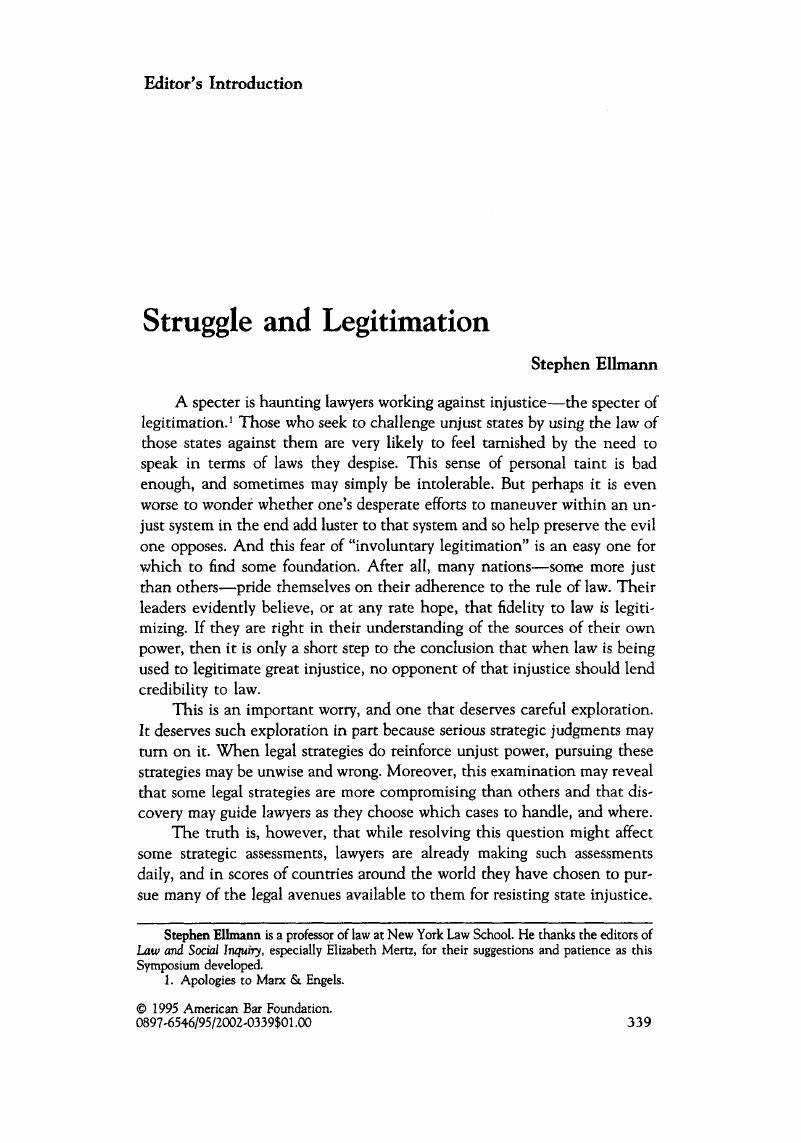Article contents
Struggle and Legitimation
Published online by Cambridge University Press: 27 December 2018
Abstract

- Type
- Symposium: Lawyering in Repressive States
- Information
- Copyright
- Copyright © American Bar Foundation, 1995
References
1 Apologies to Marx & a Engels.Google Scholar
2 The articles are George E. Bisharat, “Courting Justice? Legitimation in Lawyering under Israeli Occupation”; Stephen Ellmann, “Law and Legitimacy in South Africa”; Mark J. Osiel, “Dialogue with Dictators: Judicial Resistance in Argentina and Brazil”; Jane Kaufman Winn & Tang-chi Yeh, “Advocating Democracy: The Role of Lawyers in Taiwan's Political Transformation.” The bulk of this Introduction consists of a discussion of these articles; I cite particular pages from them only for direct quotations.Google Scholar
3 That most of these countries were guilty of profound injustice during the periods these articles examine will not seem controversial. To call Israel's occupation of the West Bank and the Gaza Strip unjust, however, certainly is controversial. I note, as Bisharat does (p. 354), that it is not necessary to believe that Israel's occupation is unjustifiable to believe “that the … Israeli military governments' repressive powers have been great, and their exercise frequent,” and so to include a study of law in Israel's Occupied Territories in this Symposium on lawyering in repressive states.Google Scholar
4 I discuss the evidence from South Africa on many of the other questions outlined in this introduction in Stephen Ellmann, In a Time of Trouble: Law and Liberty in South Africa's State of Emergency (1992).Google Scholar
5 The quoted language is drawn from Mark Osiel's statement (p. 550) of the “criterion of moral self-scrutiny” that public officials should adopt.Google Scholar
- 3
- Cited by


